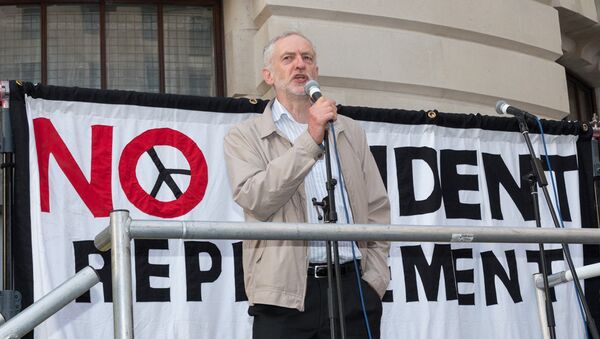Despite opposition from within his own party on the issue, Corbyn reiterated his personal commitment to nuclear disarmament, which includes scrapping the UK's current nuclear deterrent system, known as Trident.
Corbyn answered unambiguously when asked if he would ever fire nuclear weapons.
"No. 187 countries don't feel the need to have a nuclear weapon to protect their security, why should those five need it themselves?" he told BBC Radio 5 Live.
"We are not in the era of the Cold War any more, it finished a long time ago."
"Nuclear weapons are weapons of mass destruction that take out millions of civilians.
"They didn't do the USA much good on 9/11 — the problems in this world are not huge wars in that way."
Questions Raised Over Nuclear Effectiveness
The comments have raised questions about whether having a nuclear deterrent, such as Trident, is effective in combating modern security challenges such as cybercrime and terrorism.
While David Cameron's Conservative government and military personnel argue that removing the nuclear deterrent would leave the UK exposed to foreign attacks, others disagree, and say that nuclear power is becoming less relevant in the modern world.
Corbyn restated his commitment to nuclear disarmament in his #Lab15 speech. He talked about the mandate he received in the election.
— CND (@CNDuk) September 29, 2015
Anti-nuclear weapons activists point out that nuclear deterrents have been powerless to prevent many of the greatest tragedies to face the world in recent times such as 9/11, London's transport bombings and environmental hazards.
The UK-based Campaign for Nuclear Disarmament (CND), for which Corbyn has a long association with, is among the most vocal opponents to renewing Trident, accusing former Prime Minister Tony Blair of previously renewing the UK's nuclear defenses merely "to give Britain status." A statement from the group said:
"Not only are these weapons immoral, potentially genocidal and strategically irrelevant in the face of the realistic threats we face today, they are also hugely expensive. The Government's National Security Strategy identifies international terrorism, cyber-attacks and natural hazards as greater threats than nuclear war."
Currently five nations — China, France, Russia, the UK and US — legally hold nuclear weapons under the Treaty on the Non-Proliferation of Nuclear Weapons (NPT).
Other countries such as India, Pakistan and North Korea have declared that they have weapons in breach of the NPT, while Israel is another state believed by many to possess nuclear weapons, but has maintained a policy of ambiguity on the issue.
How many skilled workers in UK are employed building Trident missiles? None, we borrow them from US. #BairnsnotBombs pic.twitter.com/wNeBaFMnci
— Scottish CND (@ScottishCND) September 28, 2015
On top of this, Belgium, Germany, Italy, the Netherlands and Turkey also house and store nuclear weapons as part of a NATO sharing agreement, which has seen the US provide nuclear weapons to these countries.



